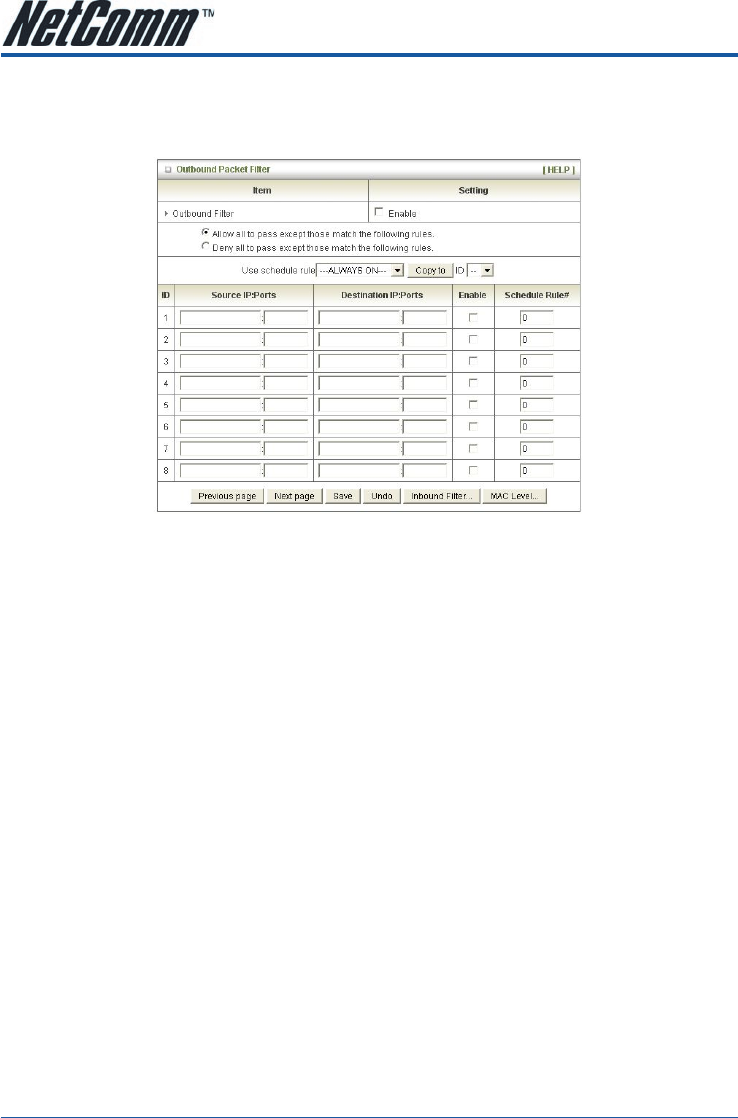
N3G002W 3G Wireless Router User Guide YML894 Rev1
40 www.netcomm.com.au
Security Setting > Packet Filters
Packet Filter enables you to control what packets are allowed to pass through the router. There are two type
of packet filter, Outbound Packet Filter which applies to all outbound packets and Inbound Packet Filter which
only applies to packets that destined to Virtual Server or DMZ host only.
To enable an Outbound Filter, please make sure to tick the Enable tick box on the top of the page.
There are two type of filtering policies:
1. Allow all to data traffic to pass except those match the specified rules.
2. Deny all to data traffic to pass except those match the specified rules.
For each direction, you can specify up to 48 rules. And for each rule you need to define the following:
• Source IP address
• Source port
• Destination IP address
• Destination port
• Protocol: TCP or UDP or both.
• Use Schedule Rule#
For source or destination IP address, you can define a single IP address (192.168.123.1) or a range of IP
addresses (192.168.123.100-192.168.123.200). Empty fields imply all IP addresses.
For source or destination port, you can also define a single port (80) or a range of ports (1000-1999). And you
need to add prefix “T” or “U” to specify TCP or UDP protocol e.g. T80, U53, U2000-2999. No prefix indicates
both TCP and UDP are defined. An empty implies all port addresses.
Packet Filter also works with Scheduling Rules, and gives user more flexibility on Access control. For detail
instruction regarding scheduling rule, please refer to Advanced Setting > Scheduling.
Click Save to save the settings and Undo to cancel.


















